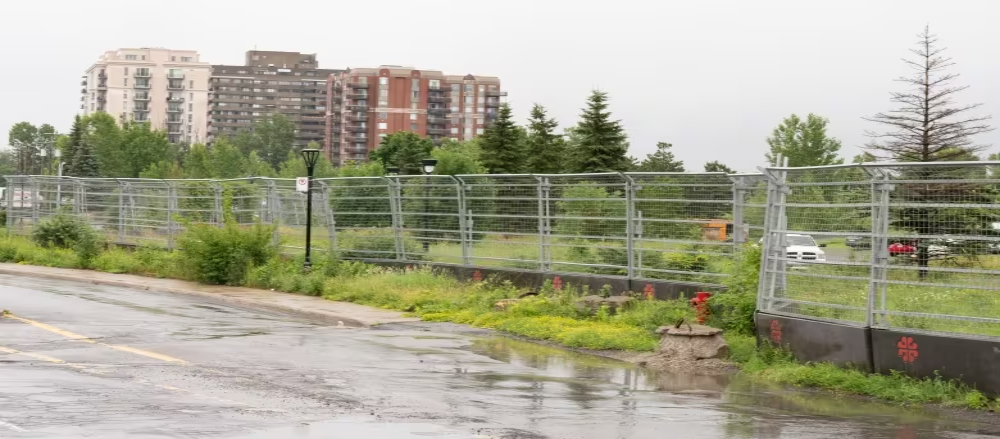Expect to wait at least 14 years for an affordable 1-bedroom in Toronto, 6 years in Montreal. Want to know how long people in Canada are waiting for subsidized, affordable housing? It’s difficult to say.
Even though affordable housing topped the agenda at the premiers’ meeting in Winnipeg this week, there’s no clear way to know exactly how long people are waiting for affordable places to live in Canada’s biggest cities.
Toronto posts its average wait online — 14 years for a one-bedroom unit as of 2022. A spokesperson for the city of Montreal said by email that its overall average wait for subsidized housing, as of December 2022, was nearly six years.
“All of them have gone to the point of absurdity, almost,” said Ottawa-based housing policy consultant Carolyn Whitzman.
Others don’t have such a specific number at the ready.
CBC News contacted a number of cities and provinces this week, inquiring how long the wait was for a subsidized one-bedroom apartment. We received a patchwork of responses indicating that jurisdictions track the need for affordable housing differently and use different criteria to determine how affordable units are allocated.
That means people in different circumstances may wait different lengths of time for subsidized housing in the same city. In British Columbia, for example, an individual’s needs can affect their wait-time, including family status and personal circumstances, such as homelessness.
And the actual number of people in need of subsidized housing may be longer than any list captures. When people see a wait as long as 14 years, they may get discouraged and not even put their names forward, said Whitzman, an adjunct professor of geography at the University of Ottawa.
There are others who are not well equipped to fill out the required applications, or may not know where to start, said Marie-Josée Houle, who was appointed as Canada’s first-ever federal housing advocate last year.
“The important question, when we’re looking at these lists, is who’s not on that list?” she said in an interview with CBC News from North Battleford, Sask.
“It’s data. But then what are the assumptions we need to make around the data to qualify it, to justify it?”
More than a quarter-million on wait lists
One national measure of the need for subsidized housing stretches back to 2021, when Statistics Canada conducted its latest Canadian Housing Survey. It showed that 1.5 per cent of households, more than 227,000 altogether, were on waiting lists for social or affordable housing. And the majority of those households, more than 148,000 of them, had been waiting for two years or longer.
The wait-lists were long in some of Canada’s largest cities, including Toronto (172,700, or 2.6 per cent of households), and Vancouver (29,100, or 1.1 per cent).
But the survey revealed a significant proportion of households in smaller cities was also much higher than average — including Hamilton (29.800 households, or 3.7 per cent) and the Kitchener-Cambridge-Waterloo area of Ontario (19,500, or 3.3 per cent).
How communities address the need
Housing policy and construction involves a complex web of players at the federal, provincial and local levels, including politicians, civil servants, co-ops, for-profit developers and more.
Canada has a national housing strategy that provides communities with funding for new projects, including money to build new subsidized housing, as well as to modernize existing units.
LISTEN | Where have you seen affordable housing work?
Ontario Today51:16Where have you seen affordable housing work?We speak with Charles Dowdall, the housing director for Prince Edward County and Brian Marks, the chief administrative officer with the Cochrane District Social Services Administration Board about what they’re doing to increase the supply of affordable housing in their communities.
One such program is the Housing Accelerator Fund, run by the Canada Mortgage and Housing Corporation, which specifically encourages the development of affordable housing. Cities, towns and Indigenous governments can submit an action plan explaining their strategies for providing housing.
“Local governments are encouraged to think big and be innovative in their action plans. This could include reducing red tape, accelerating project approvals, incentivizing affordable housing units, or introducing zoning reforms to build more density,” the CMHC said in a statement.
But several housing researchers say Canada’s plan still places too much emphasis on building condominiums and home ownership — which, at current prices, is out of many people’s reach.
“Home ownership was what government policy was [built] around, and still is, to a large extent,” said Penny Gurstein, co-director of the University of British Columbia’s Housing Research Collaborative.
“Over half of the population in Vancouver have been renters since the 1970s.… And still, all the policies and kinds of housing being built is based on home ownership, and now condominiums.”
New models to consider
One group of housing researchers, including Whitzman and Gurstein, is exploring new ways to help communities gauge their housing needs. For example, one of the tools developed by the Housing Assessment Resource Tools (HART) project helps municipalities find pockets of land upon which they can build affordable housing.
Houle, the federal housing advocate, would like to see people who need subsidies receive a portable housing allowance to give them more choice and the ability to move.
She’d also like to see a day when up to half of all the rentals available in Canada are considered “non-market” housing — meaning housing that isn’t necessarily subsidized, but isn’t designed to turn a profit, either.
“That’s my dream. That’s my thought,” she said.
“We need a lot of political will, and everyone will say it will cost so much money,” she continued. “And then, what is the cost of not doing anything? Well, we’re in a housing crisis. That’s the cost.”

Source : CBC


